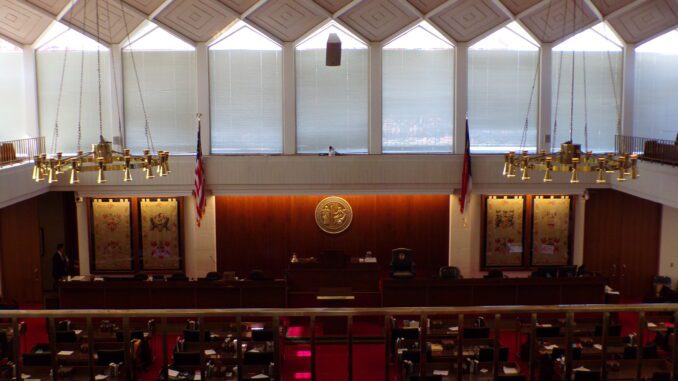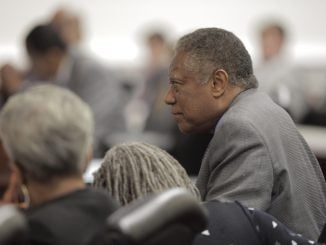
RALEIGH — A bill filed in the North Carolina House revives a previously vetoed bill that would bar the core tenets of the controversial Critical Race Theory from K-12 classrooms.
Critical Race Theory (CRT) is a set of beliefs with Marxist roots that holds racism is constant and inherent in all people and institutions. CRT views all facets of society through a racial lens, dividing people into oppressed and oppressor categories by race.
House Bill 187, titled “Equality in Education,” was filed by House K-12 Education Co-Chair Rep. John Torbett (R-Gaston) along with Reps. Hugh Blackwell (R-Burke), David Willis (R-Union) and Diane Wheatley (R-Cumberland).
Under the measure, freedom of speech and the rights of others to express differing views would be protected, as well as promoting and defending intellectual honesty.
The bill bars the promotion by schools and the compelling of students to affirm a list of 13 beliefs, mainly those found in the core components of Critical Race Theory.
Those include belief one race or sex is inherently superior, individuals are oppressors or oppressed simply by their race or sex, meritocratic societies are racist, and character traits are ascribed only on the basis of race of sex.
An additional requirement directs public school units (PSUs) to notify the Department of Public Instruction and to post information on their websites at least 30 days before providing instruction in any educational or professional setting on any of the 13 items, as well as engaging, contracting or hiring of diversity trainers, speakers, consultants, or other persons on any other related groups or individuals.
Certain exemptions in the bill would apply to the notifications required of PSUs such as speech protected by the First Amendment and materials for a course on the history of ethnic groups adopted in accordance with state laws. Additionally, impartial discussions of historical oppression of certain groups of people or historical documents are also exempt.
The bill would enact a new statute under the title, “ensuring dignity and nondiscrimination in schools.” That title is the same and the content is similar to previous legislation (House Bill 324) that was passed and vetoed by Democratic Gov. Roy Cooper in 2021.
“No student or school employee should be made to feel inferior solely because of the color of their skin or their gender,” Torbett said in a statement at the time House Bill 324 was introduced. “Our public schools should be a place of respect—not hateful ideologies.”
“This is a common-sense bill that provides reasonable expectations for the kind of civil discourse we want our children to experience in public schools. This ‘golden rule’ approach ensures that all voices are valued in our school system,” State Superintendent Catherine Truitt said in a statement at the time.
The 2021 bill also had the backing of House Speaker Tim Moore (R-Kings Mountain), who in a press release regarding the bill cited North State Journal’s reporting on CRT training in Wake County Public Schools that was conducted by a company called The Equity Collaborative. The company was founded and is run by Sen. Graig Meyer (D-Orange).
The same year, Senate Leader Phil Berger also spoke at length about a state constitutional amendment to combat the divisive CRT ideology that he was proposing. The proposal did not advance beyond the Senate, however.
At the time House Bill 324 and the proposed constitutional amendment were being discussed, the president of the North Carolina Association of Educators (NCAE) Tamika Walker Kelly, along with around 4,200 teachers across the country, was signing a pledge vowing to teach CRT “regardless of the law.”




